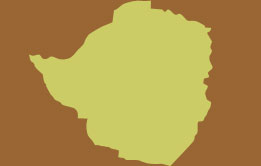Zimbabwe, once a nation with substantial press freedom, has become one of the world’s most repressive under the leadership of President Robert Mugabe. The government focuses much of its effort toward controlling information about domestic political unrest and the country’s economic problems, particularly its inadequate food supply.
The regime has enacted restrictive laws regarding public security, criminal defamation, protection of privacy and the like that are broadly interpreted to limit speech and to bring lawsuits against members of the press. “Inaccurate” information has been criminalized, and, since September 11, 2001, press crackdowns have been increasingly justified in terms of the fight against terrorism. All of the broadcast media are state-controlled, and journalists are required to register with a government commission. Alongside these measures, the press is subject to intimidation, financial pressure, arrest, and torture by police, and vigilante attacks by supporters of the ruling party.
Though the Mugabe regime has maintained these practices for years, recently the level of repression has increased dramatically. The country’s only independent newspaper, the DAILY NEWS, which had been subject to repeated bombing attacks in the past, was finally forced to close in 2003 by the government. In addition, foreign journalists who speak critically of the regime are denied state accreditation. In 2003, the Zimbabwean government deported the only foreign correspondent working within the country’s borders.
These measures appear to have the continued endorsement of the government: In February of 2004, the Zimbabwean Supreme Court upheld legislation requiring the licensing of media by a government commission and maintaining the government’s right to impose fines and imprisonment on those who practice journalism without government approval.
- Previous: West Bank and Gaza



